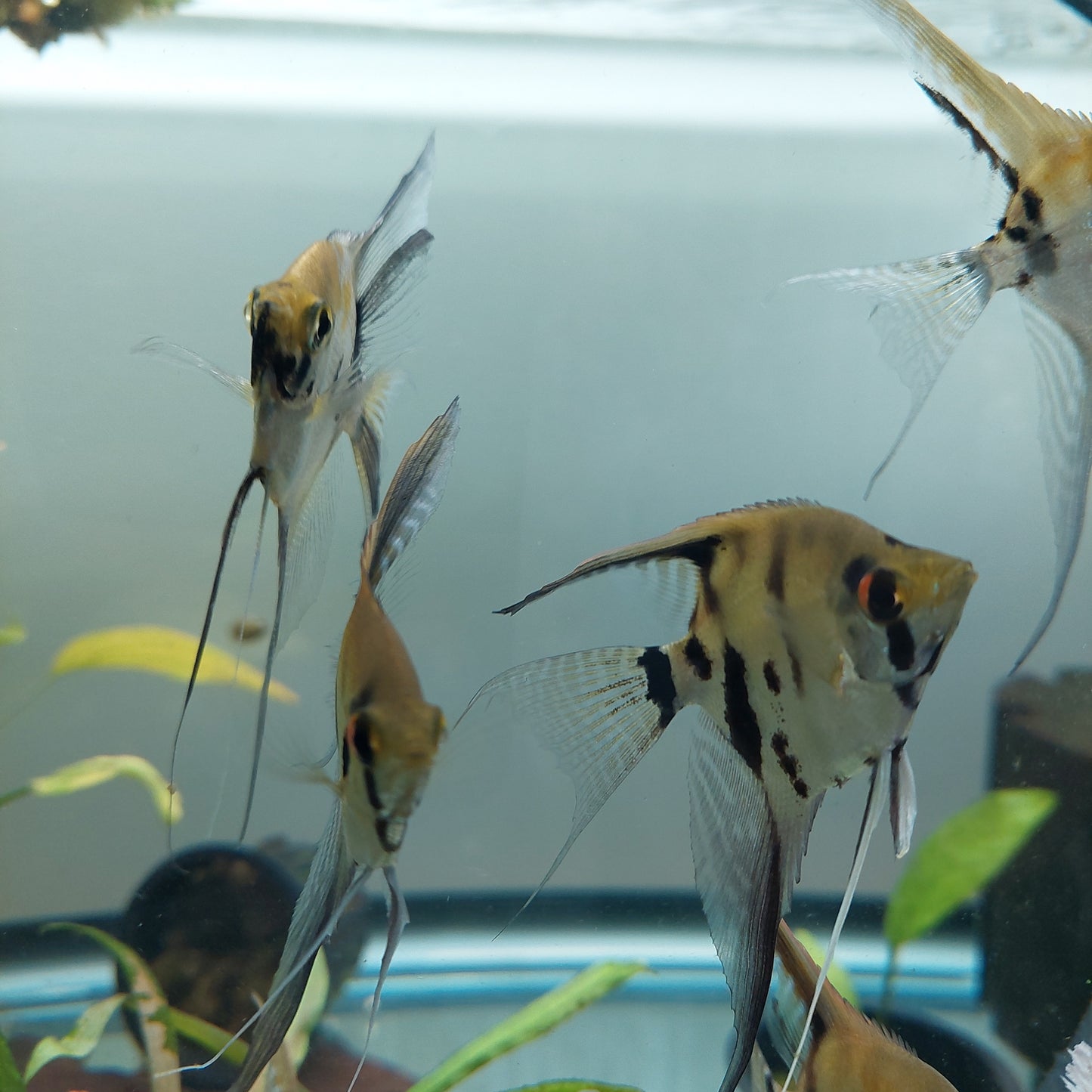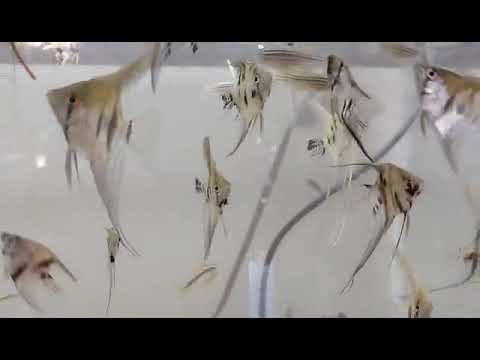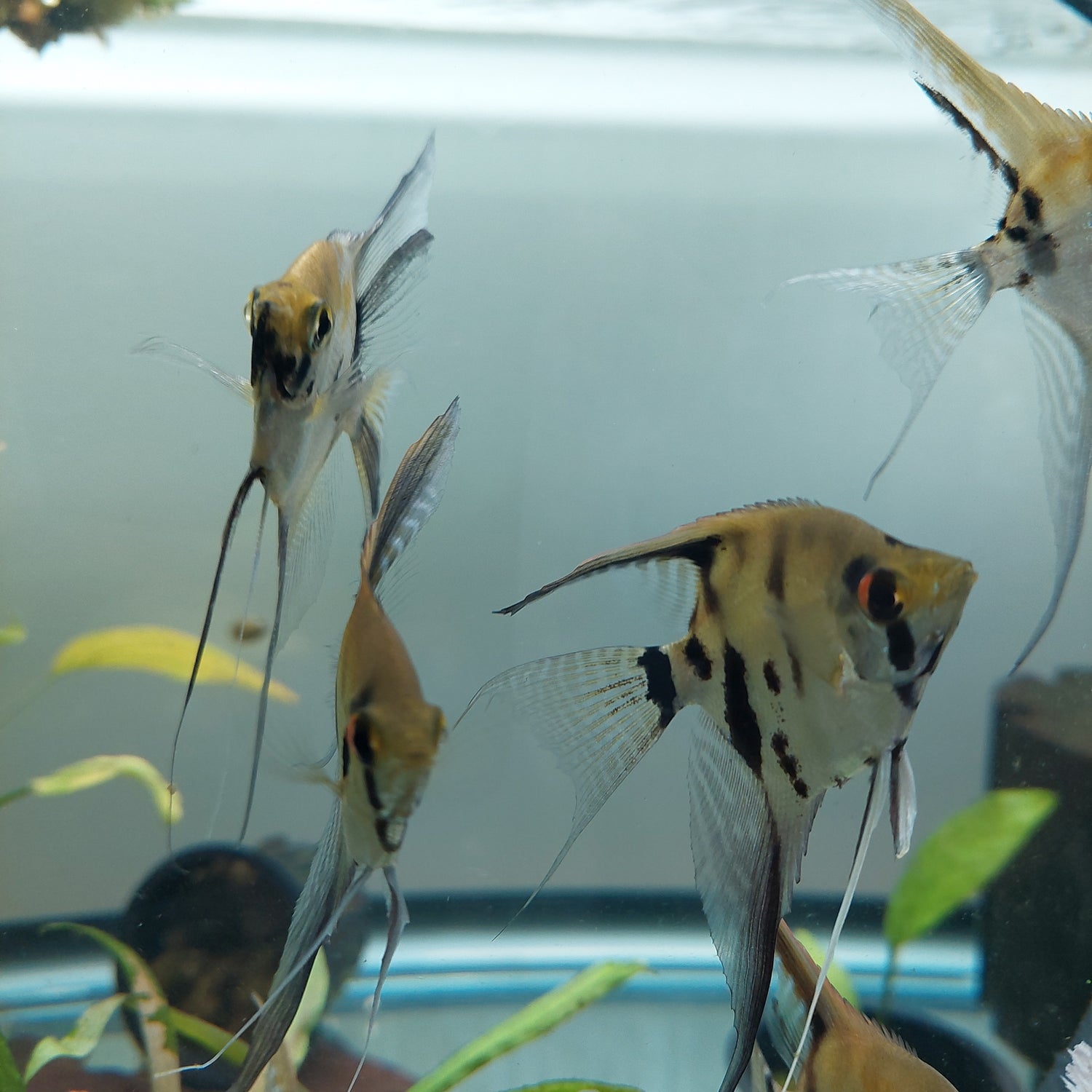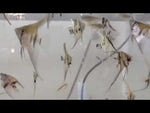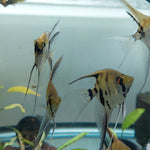Arium
Marble Angelfish (store bred)
Couldn't load pickup availability
Our store-bred Marbled Angelfish are kept with the utmost care and shipped when in peak condition. Captivating colors and intricate patterns adorn their bodies, showcasing the natural beauty of the species. They are prized for their calm demeanor and flexibility, happily coexisting with multiple tankmates.
Tank Size: A spacious aquarium is essential, with a recommended capacity of at least 20-30 gallons to accommodate a pair of Marbled Angelfish. Providing adequate swimming space is crucial for their graceful movements and potential breeding behaviors.
Water Conditions: Maintain stable water parameters to support the health of Marbled Angelfish. Keep the water temperature within the range of 76-82°F (24-28°C) to create a comfortable environment. Additionally, maintain a slightly acidic to neutral pH level, ideally between 6.5-7.5. These water conditions closely mimic their natural habitat.
Aquascape: Design the aquascape with attention to vertical space and hiding spots. Marbled Angelfish thrive in environments with ample cover. Incorporate live or artificial plants, driftwood, and rocks to mimic their native surroundings. Broad-leafed plants offer suitable shelter and resting places for these angelfish, promoting their well-being.
Diet: Ensure a well-rounded diet for your Marbled Angelfish. High-quality flake or pellet food serves as a dietary staple. Enhance their nutrition by including live or frozen offerings, such as brine shrimp, bloodworms, and daphnia. A diverse menu is key to supporting their overall health and vibrancy.
Compatibility: Marbled Angelfish typically exhibit peaceful behavior but can become territorial during breeding. When selecting tank mates, opt for species that share their peaceful nature and are compatible in terms of size and water parameter requirements.
Maintenance: Regular maintenance is crucial to maintaining a healthy aquatic environment for your Marbled Angelfish. Plan on conducting water changes of approximately 25-30% every 2-4 weeks to ensure optimal water quality. To enhance water circulation and filtration, invest in an efficient filtration system, such as canister or sponge filters. Periodically test water parameters, including temperature, pH, ammonia, nitrite, and nitrate levels, to promptly address any fluctuations.
